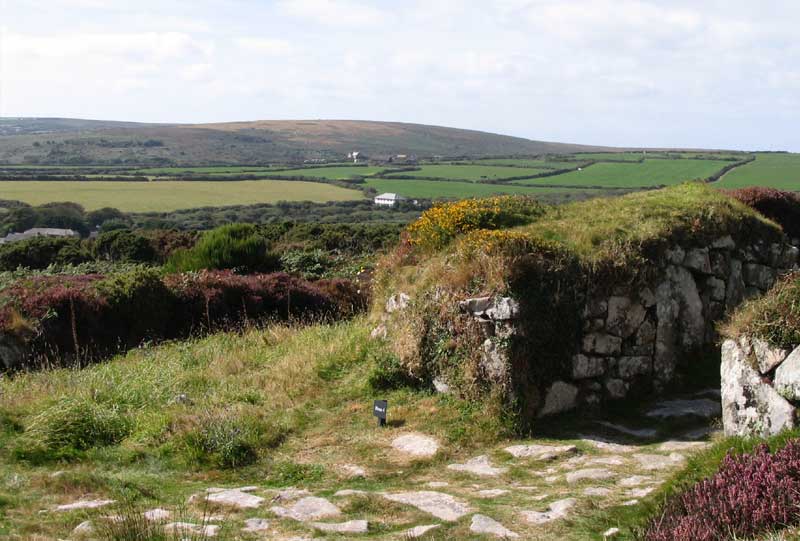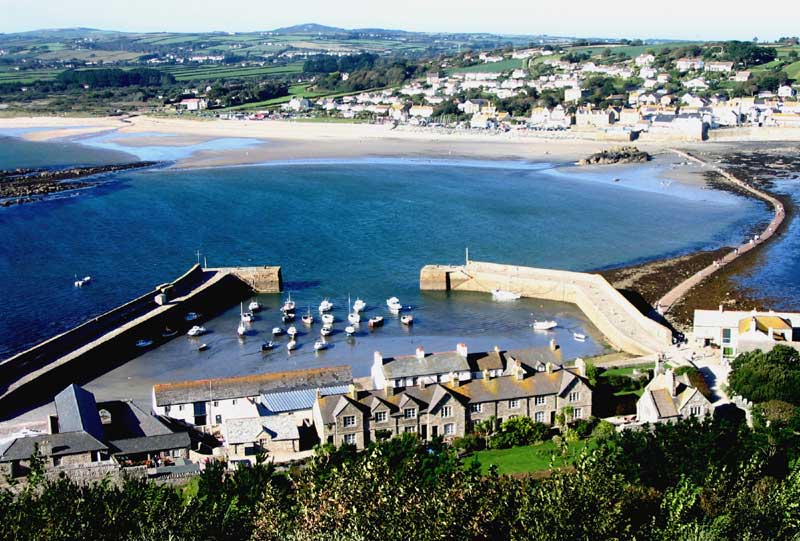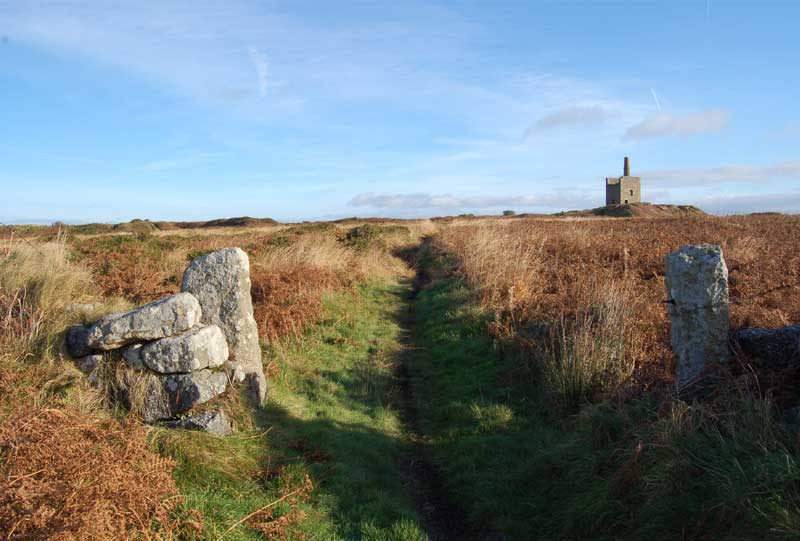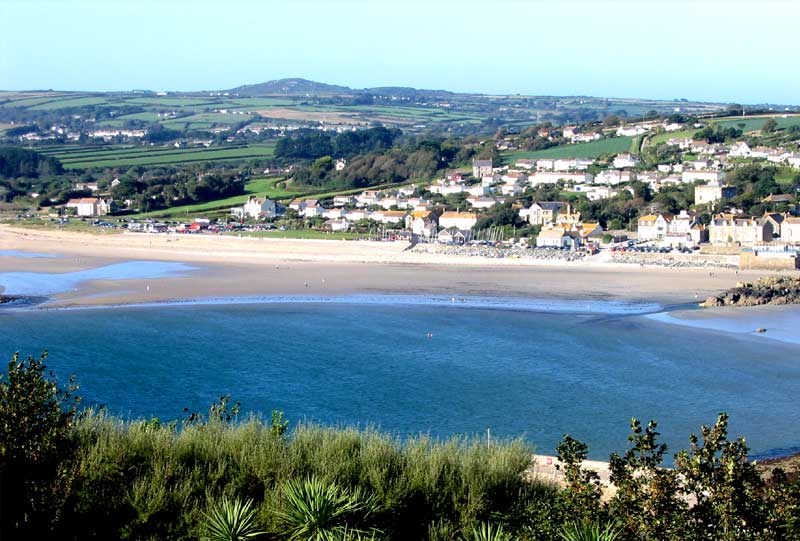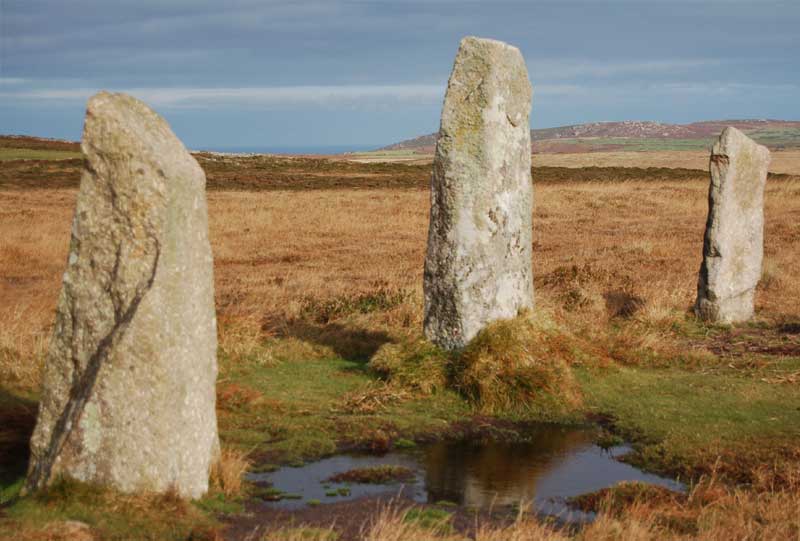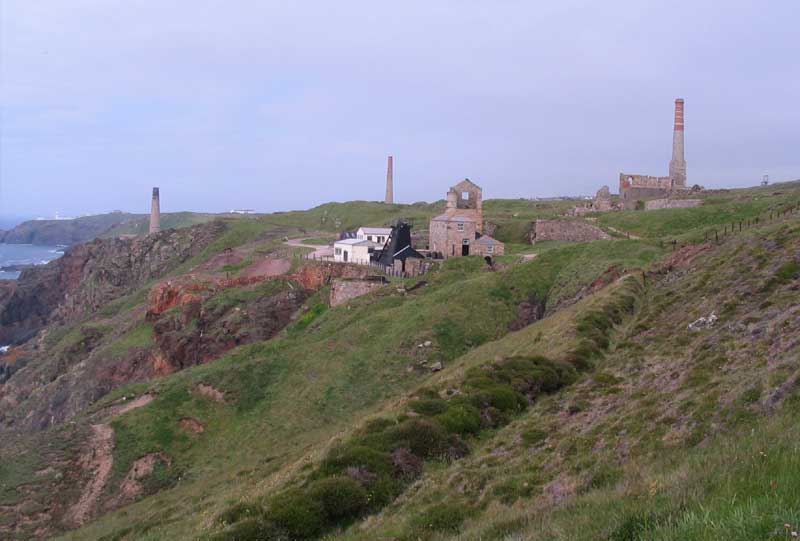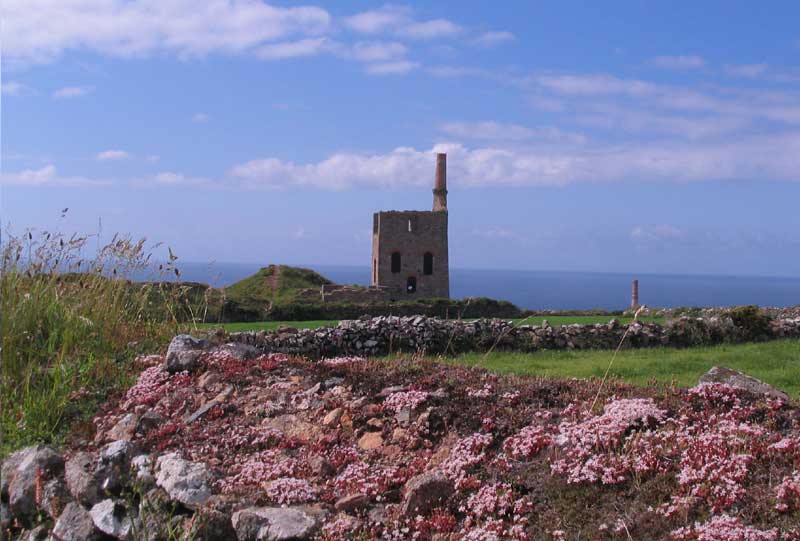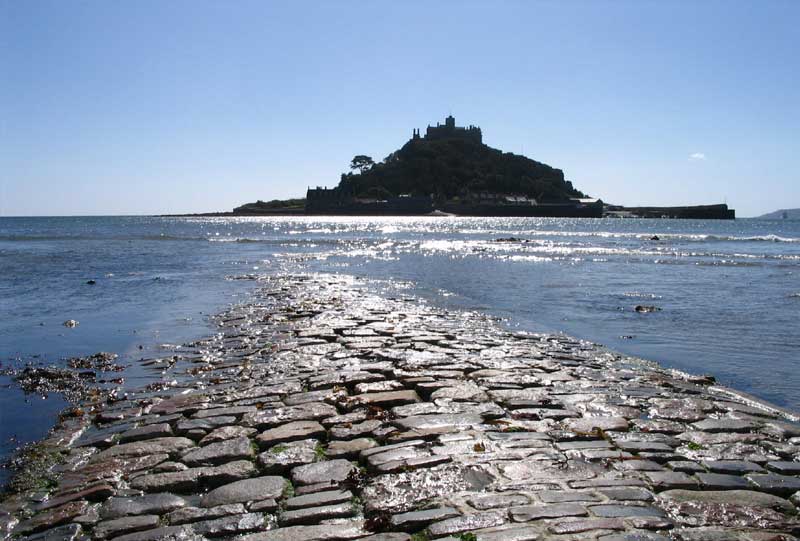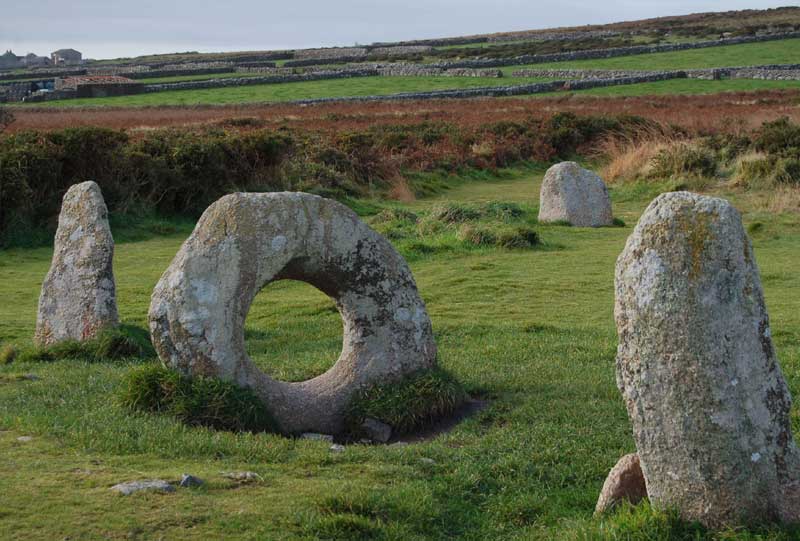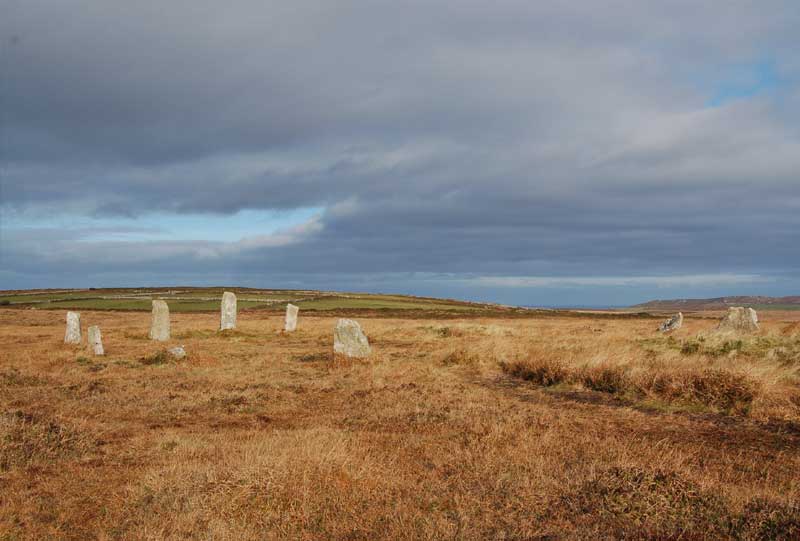Davies Giddy is probably more well known as Davies Gilbert but if you try to find a birth date for young Mr Gilbert by searching parish registers you'll run into a problem. In short, he is not there! So, just who is this famous man of west Cornwall and why the enigma concerning his birth?
Today is St Piran's Day. Patron saint of Cornwall and patron saint of tin-miners, his flag is the flag of Cornwall and his day is celebrated widely throughout the Cornish world. But who was St Piran?
On 4 March 1863 Richard Trevorrow, a miner previously of St Just, came before the West Penwith justices to sue Captains Carthew and Wearne of St Just United Mine for non-payment of his wages.........................
All the parish priests and their officers for the whole of Penwith and Kerrier were due to meet in Helston that Thursday to take the oath. We don’t know what the weather was like but on Friday and Saturday when the men of St. Ives and St. Just took the oath the lists, called Protestation Returns, got wet and the ink ran.
In their accounts of the Petty Sessions local newspapers can shine a light on the murky affairs of the past, often to reveal that they are in fact little different from the present......
1st March 1867 saw the first broad gauge passenger train from Plymouth to Penzance. The availability of broad gauge all the way to Penzance opened the way for through trains from Paddington to Penzance.................
On Tuesday last sennight the last day of February Mr Trevannion of Carhease and Mr Kenipt, Sir Robert Carey's man, Mr Slader with 7 or 8 men came in the copper mines at St Just and took all the tools from the workmen by inventory and said they should work no more...........
Cornubia was the only iron passenger vessel ever built in Cornwall and between 4000 and 5000 people are estimated to have turned up to watch the launch.
At the Three Tuns Hotel in the Greenmarket, something out of the ordinary is taking place. The Loyal Queen's Own Lodge No 3910 is holding its first meeting. The Odd Fellows have come to town.
On 25 February 1739 William Borlase, now engaged in serious study of the natural history and antiquities of Cornwall, wrote to Archdeacon George Allanson at Exeter regarding the lack of libraries in Cornwall...
......the purser had just declared a profit of £2357 for the quarter with a dividend of £10 per 200th share.
Throughout the land, though, a new threat is making itself felt. There is illness – a lot of it – about. So perhaps, as you feel a little bit of a tickle in your throat, a little bit of a shiver in your shoulders,...................
It’s spring, and the end of another weary, wartime winter. What could be finer than a bunch of Cornish daffodils, to brighten the home? A dealer who only gives a box number is crying out on the front page of the Cornishman for “Anemones, Violets, Daff.s, Etc”. He will take “any Quantity, for CASH”. He will pay “London prices”.
Annie Eliza was born in Newlyn Town. When her fisherman father died, the family moved out-the-Green to Gwavas Terrace, three doors from Henry and Annie Tonkin, a childless couple who let rooms to visiting artists. Annie Eliza was soon modelling for the artists to help the family finances.
Clark described Penzance as being in one of the most beautiful positions “upon a bay proverbial for its salubrity and beauty” yet stated that “It would be difficult to find a spot so foul in which life is so seriously affected “– the sickness and mortality caused by dysentery had been excessive in his judgement.
The Penzance and District Electric Supply Company have done themselves proud. Mr Lawrence will be giving his special lecture on the Holophane System of Illumination at 7 30 sharp, but while you wait there is plenty more to see.
But now, after the first winter of what will soon be called the Great War, those lads are not so sure. And in Penzance, on February 18th 1915, matters have come to a head. They know that, should they be drowned or blown to smithereens, their families will be given ample compensation. But that doesn’t seem like enough.
Not Nelson's famous flagship but a smack from Bristol bound for Exeter laden with freestone and castings. Victory hit The Ridge and became a complete wreck......or did she.........
The closure of Geevor Mine in 1990 brought to an end over 3000 years of mining history for the Pendeen and St Just district. Though not unexecpected, the end, when it came, was sudden, swift and final.
Edwin Varker died in an explosion at a mine in Silver City, Idaho, USA in 1902. He was 38 years old and left a wife and two daughters.
History is made every day, but interpretation can only come with distance. So today we present the raw stuff of History – some primary sources, free of the intermediary hand.
This spring has been the most severe and most backward known for a number of years. No grass; cattle dying for want of fodder….”
“arrived the Usk steamer from Bristol, having on Board the three Chartists (Frost, Jones and Williams) who were condemned to death for high treason after the late riots at Newport,"
Royal Cornwall Gazette, 19 February 1814 reported that a meeting was held on Friday 11th February to look into the formation of a geological society for Cornwall.
...
the public were invited to help scrape and paint the undersides of three old luggers or to set up their easels on the Quay and paint....
“Arrived the Welsh fleet; some having been nearly twelve weeks on the voyage. Coals advanced 2s. Per way; price now 46s.”
Conflict between the 'traditionalists' and the 'modernists' at the St Ives Society of Artists in 1948 led to the resignation of 24 modernists and the following year they formed the Penwith Society
History, it is said, repeats itself. Be that as it may, today's proceedings were somewhat reminiscent of occurrences in the “Hungry Forties,” when St Just miners marched to Penzance.
Villagers have read the reviews, and are hoping that Chang, the Chinese giant, will be there, and Captain Kidd. They want to hear the patter of Mr Lobb, the “capital” showman, as he introduces the Chamber of Horrors
On 5 February 1818, 79 years after William Borlase wrote to George Allanson bemoaning the lack of libraries and centres of learning in Cornwall, the Cornwall Literary and Philosophical Institution was founded in Truro.
Tail-piping or pralling dogs in the neighbourhood of Penzance ranked as an amusement, next to bull baiting, with the lower orders of society....
The Nile was a four year old, iron-hulled, sail assisted steamer, a cargo ship with passenger accommodation. She hit the Stones at night in bad weather with the loss of all hands......
William Borlase was born at Pendeen House on 2 February 1696. Pendeen House still stands, one field away from the Atlantic near Pendeen Head.
Richard Oxnam, one of the original partners in Penzance's first bank, leading merchant and investor in mines looks as if he's made it.
Like the Levant Packet which was launched at St Ives on 4th January 1828, Brunel's Great Eastern was also a difficult ship to launch and needed several attempts to get her afloat. On 31st January 1858 Great Eastern finally floated...
Penzance seemed to be full of marching men in late January 1915 and inevitably there was a certain amount of competition.
Cyril Noall describes the collapse as "perhaps, the largest ever known in the neighbourhood. At surface, the effects resembled a minor earthquake."
Walking over from Sheffield to Kerris for his day’s work in the fields, young Willie Wallis hears something unusual. “I thought it was funny sound”, he will explain later. It’s coming from a distance, from way over by the old Snell’s quarry.
Penzance is alarmed. Hoteliers, be on your guard – your “difficulties” will be “increased”. Farmers – be ready. You must prepare for longer journeys on the difficult January roads. Housewives beware – there will henceforth be less “odds and ends".........
Urgent military training requirements in 1915 saw men travelling all over the country to attend training camps....
Honour Roberts died in 1679 and the inventory of her property is dated 25 January 1680. She was the widow of William Roberts and lived at Chykembro in Zennor
Open your copy of the Cornish Tidings, hot off the press. It’s 1921 now, and after the long war everything’s getting back to normal. Or what will pass for normal, in the coming age.
Blight’s death on January 23rd 1911 will go unremarked. And why? Because, as far as the world knows, he is already long dead...........
The outbreak of WW1 saw an urgent need to grow the small, professional, British Army which was now committed to war on four fronts against the huge conscript armies of the opposition.
Mr Branwell, President of the Penzance Gas Company, has not enjoyed 1887 so far. There are new boys in town, selling what they claim is a better – albeit more costly – product than his company can offer. Coming to a street near you, and soon – the new electric light.
The bottom of a vessel was observed about four miles from the land. The gigs went to the wreck, which proved to be the Riga Packet, of London, from the West Indies. Nothing has been heard of the crew.
Is West Cornwall a place where the people dwell in harmonious sympathy with dumb creatures? Or are the ways of the place cruel, outlawish? Today, 19th January 1912, a hearing in London is considering this very matter.
Penzance Choral Society is one of the country's oldest mixed voice choral societies, and almost certainly its most westerly one..........
Charles Ross has left town, the self-appointed liquidator of the affairs of Batten, Carne and Carne has made himself scarce and now his house and possessions are up for sale.
Here comes Mary Bolitho of Trewidden, with her silver key.....
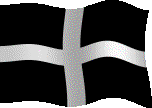
Penwith Local History Group
c/o Morrab Library
Morrab Gardens
Penzance, Cornwall
TR18 4DA

Penzance, Cornwall

Photo Glyn Richards
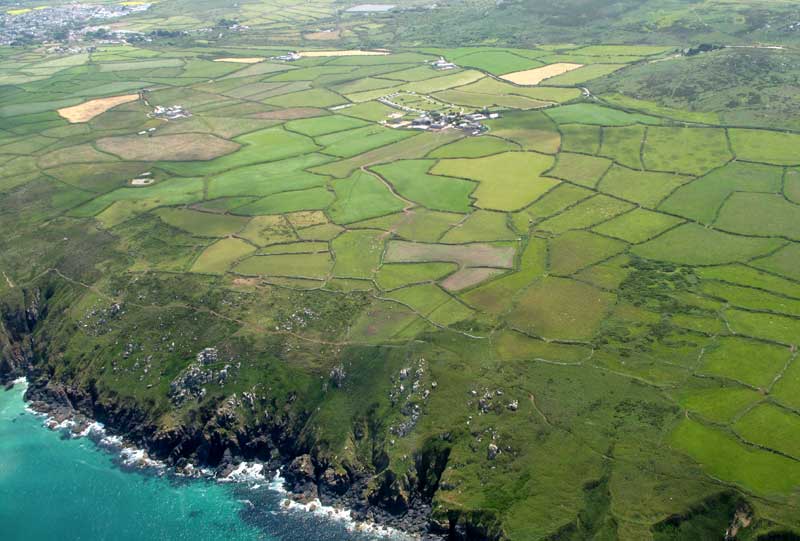
Coastline near Zennor.
Photograph by intocornwall.com
Click on the photo above to view more photos
